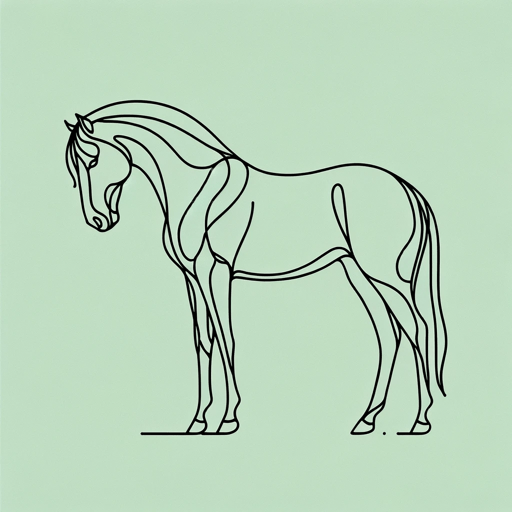63 pages • 2 hours read
James WelchWinter In The Blood
Fiction | Novel | Adult | Published in 1974A modern alternative to SparkNotes and CliffsNotes, SuperSummary offers high-quality Study Guides with detailed chapter summaries and analysis of major themes, characters, and more.
Summary and Study Guide
Overview
James Welch’s novel, Winter in the Blood, is a seminal text in the field of Indigenous American literature. The novel was published in 1974 during the Native American Renaissance, a period that began in the late 1960s, when works by Indigenous Americans in the United States gained wider publication. Welch is a preeminent figure of the movement and received praise for representing Indigenous Americans in realistic ways that acknowledge cultural divisions.
In the novel, Welch uses the term “Indians” to refer to Indigenous Americans of many tribal identities. Welch’s father was a member of the Blackfeet tribe; his mother was a member of the Gros Ventre or A’aninin tribe. Welch attended schools in both the Blackfeet and Gros Ventre reservations in Montana, where the novel is set. Many of the locations in the novel, such as Harlem and Milk River, were familiar to Welch due to his time spent at the Fort Belknap reservation.
Winter in the Blood is Welch’s debut novel. Welch wrote exclusively poetry before, publishing one collection, Riding the Earthboy 40 in 1971. Winter in the Blood received critical praise and scholarly attention but was not selected for any awards. In 1995, Welch was awarded the French Chevalier de l’Ordre des Arts et des Lettres in recognition of his significant contributions to literature and the arts. In 2012, Indigenous American author Sherman Alexie helped adapt the novel into a feature film.
Content Warning: The source material includes depictions of sexual assault; some offensive language is directly quoted for the purpose of literary analysis.
Plot Summary
Winter in the Blood follows an unnamed protagonist as he seeks to reclaim stolen belongings from his ex-girlfriend. The novel opens with the unnamed narrator returning to his childhood home, a ranch in Montana owned by his mother, Teresa. He is hungover, sore, and bruised from a fight he only distantly remembers. At the ranch, the narrator discovers that Agnes, the girl he’d brought home to live with his family, departed and stole his gun and electric razor. Teresa explains that the girl was unhappy and belongs in town. She also tells the narrator that his grandmother hated the girl. Shortly after he returns home, Teresa leaves with a family friend named Lame Bull. After three days, Teresa and Lame Bull return and announce that they are married.
The narrator believes that Lame Bull married Teresa solely to become half-owner and proprietor of the ranch. He notes that Teresa and Lame Bull have an active sex life but does not think there is an emotional connection beneath that. The narrator is an apathetic and detached man who claims to feel nothing for anyone. He stays on the ranch and helps Lame Bull with chores. Teresa tells the narrator stories from his childhood, many of which involve the narrator’s older brother, Mose, who died when they were adolescents. They also discuss the death of First Raise, the narrator’s father, who had frozen to death ten years ago while walking home from a bar at night in deep winter. While working on the ranch, Lame Bull has a conflict with a hired hand and punches the man in the face.
Later, a family friend named Ferdinand Horn comes to visit along with his wife. As the group drinks and socializes, Horn and his wife tell the narrator that they’d seen his ex-girlfriend, Agnes, in town with a white man. They prod the narrator to go after her and he decides he will. The narrator takes a bus to the town of Malta to look for Agnes. He finds her brother, Dougie, and agrees to help him rob the white man Agnes has been spending time with in exchange for information about Agnes’s whereabouts. The robbery is a success, but Dougie cheats the narrator out of both the stolen money and information about Agnes.
The narrator goes to another bar where he meets someone he calls the “airplane man,” due to a story the man told about leaving his wife at the airport. At the same bar he meets a barmaid who seems to know the airplane man. The airplane man tries to figure out how he knows the barmaid, but she does not clarify. The narrator checks the family’s post office box and finds a letter to his mother from the priest who lives in a neighboring town. The narrator resents the priest, who will not come onto reservation land to bury people; he tears up the letter.
Back at the ranch, the narrator saddles up old Bird, one of their horses and goes to visit Yellow Calf, a blind old man who lives a few miles up the river. Yellow Calf says that he speaks to the animals and that they are upset because the world is “cockeyed.” Lame Bull, Teresa, and the narrator all go to the nearby town of Harlem. The narrator hears that Agnes is in the town of Havre and lies to a woman he meets at the bar, Malvina, so that she will give him a ride. In the morning, the narrator wakes up in Malvina’s home and gropes her naked body beneath the covers while she is still asleep. She tells him to leave and he considers sexual assaulting her, but he decides not to because her young son is in the next room.
The narrator resumes his search for Agnes. He runs into the airplane man at another bar, who tells the narrator that he needs help evading the police. He convinces the narrator to join him in a plan: the airplane man will buy a car, the two men will drive across the border into Canada and to a plane that will take the airplane man out of the country, and then the narrator will drive home to Montana and keep the car. The narrator agrees but is disappointed when the car the airplane man buys is in poor condition. The narrator has second thoughts and goes to find Agnes instead. She tells him that her brother and some of his friends are looking for the narrator to beat him up because they think he is in town looking to get revenge on Dougie. The narrator tries to calm Anges but does not get very far before he is sucker punched in the face by Dougie.
After being hit, the narrator reflects on a day 20 years ago, when he and his brother Mose went out to gather the herd of cows just before winter grew too cold. This is the first of several flashbacks to the day Mose died. In the present, the narrator meets a woman, Marlene, outside of the bar. His face has been beaten and he is bleeding and sore. He gives Marlene five dollars to go get drinks for the two of them. When she does not return, the narrator gets up and goes to find the airplane man. A commotion draws him to the front of the town’s hotel, where he sees the airplane man being arrested by police and government agents. He waits in his car hoping to see the barmaid, who he had spotted talking to the airplane man and entering the hotel earlier, but she never emerges. He finds Marlene and they go to another hotel to drink and have sex.
In the morning, the narrator pinches Marlene’s nose closed to wake her up and they have sex again. Later, he slaps her and pins her to the bed, watching apathetically as she cries and struggles to get free. He lets her go and leaves her all of his money. Miserable, the narrator walks home, leaving the car and the town behind him. When he returns home, he discovers that the old woman is gone and assumes she has died. Teresa and Lame Bull come back from the store and confirm this. Teresa insists on having the local funeral director “fix up” the old woman for her burial at home. The narrator and Lame Bull dig the old woman’s grave and then Lame Bull and Teresa go to town to make arrangements.
The narrator thinks again about his brother’s death. He had been 12 and his brother 14 when things had gone wrong on their return from collecting the herd. It was stormy and the light was low; the cows stalled, the herd broke, and Mose’s horse was hit by a car. The narrator also fell from his own horse and injured his knee, a problem that pains him even 20 years later. Back in the present, the narrator saddles Bird, the same horse he’d been riding on that night long ago, and heads out into the country. He has an intense, empathetic insight into what it was like for the horse to be tamed from a wild animal into a working animal. He cries and is able to confront some of his grief.
After his breakthrough, the narrator goes to visit Yellow Calf. He tells Yellow Calf that his grandmother is dead. Yellow Calf tells the narrator about the old woman’s youth, but it is different than the story she had told the narrator himself. In the old woman’s version, she left out the fact that the tribe blamed her “bad medicine” for their misfortunes: the arrival of the white men, one of the worst winters anyone could remember, the starvation of many tribespeople, and the killing of the tribe’s chief, Standing Bull, to whom the old woman, then a teenager, had been recently married. The narrator realizes that his grandmother had omitted many things from her story and becomes convinced that Yellow Calf is actually Teresa’s father.
Returning to the ranch, the narrator discovers that one of the cows is stuck in a sucking mud and is close to drowning in it. At first he does not want to help her because she was the cow who had broken from the herd, starting the chain of events that led to Mose’s death, but when she seems to give up he is spurred into action. He tries to get a rope around her head and ties the other end to the pommel of Bird’s saddle so that the horse can help pull the cow from the mud. The narrator physically exhausts himself in the first part of the attempt, but rallies and mounts Bird to rescue the cow. They pull the cow from the mud but, in the process, Bird falls. It is implied later that the horse dies as a result of this fall.
The novel ends with the narrator lying in the mud, with the rain falling on his face, thinking about how pleasant it is to be “distant” in a clean summer rain. Following this is an epilogue in which the family buries the old woman. Lame Bull delivers a superficial and blithe eulogy while Teresa cries and falls to her knees beside her mother’s grave. The narrator, indifferent to his mother’s grief, thinks about his knee and Agnes, and how he will persuade her to marry him next time he sees her.


